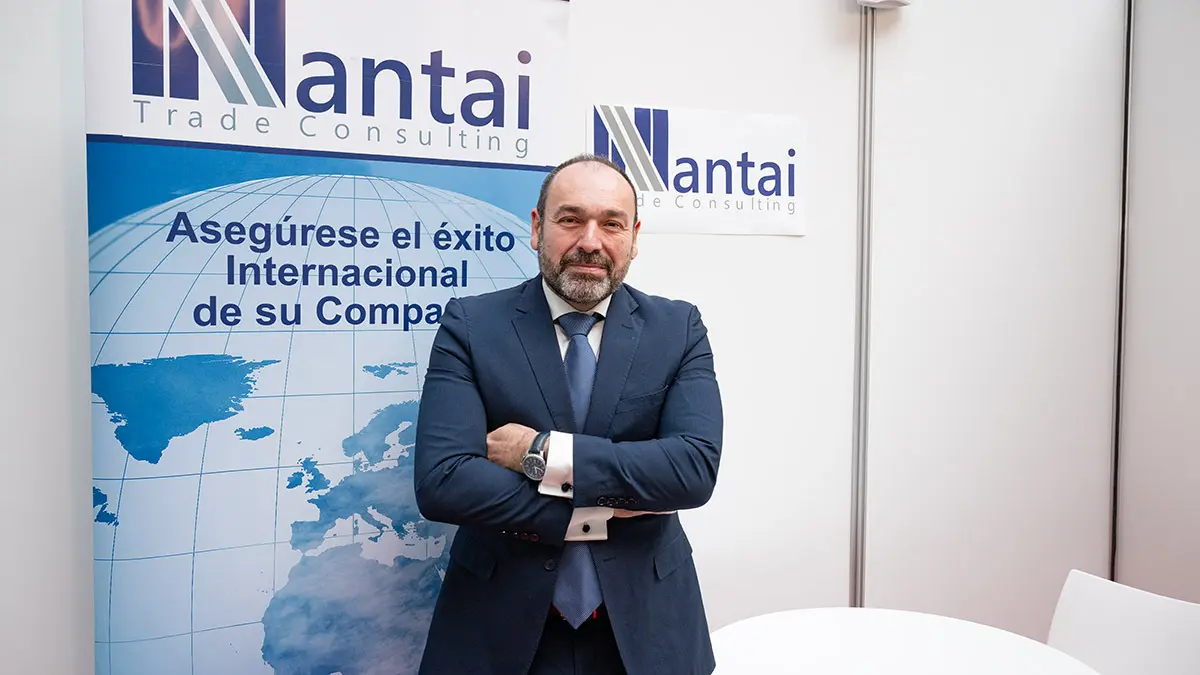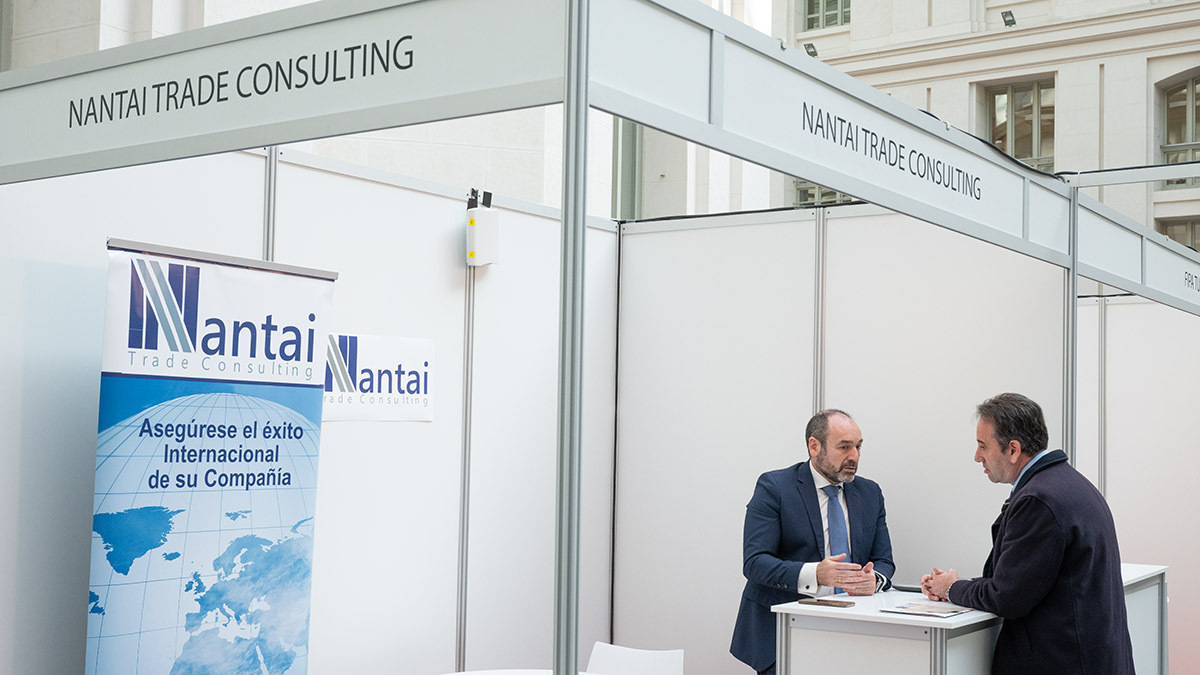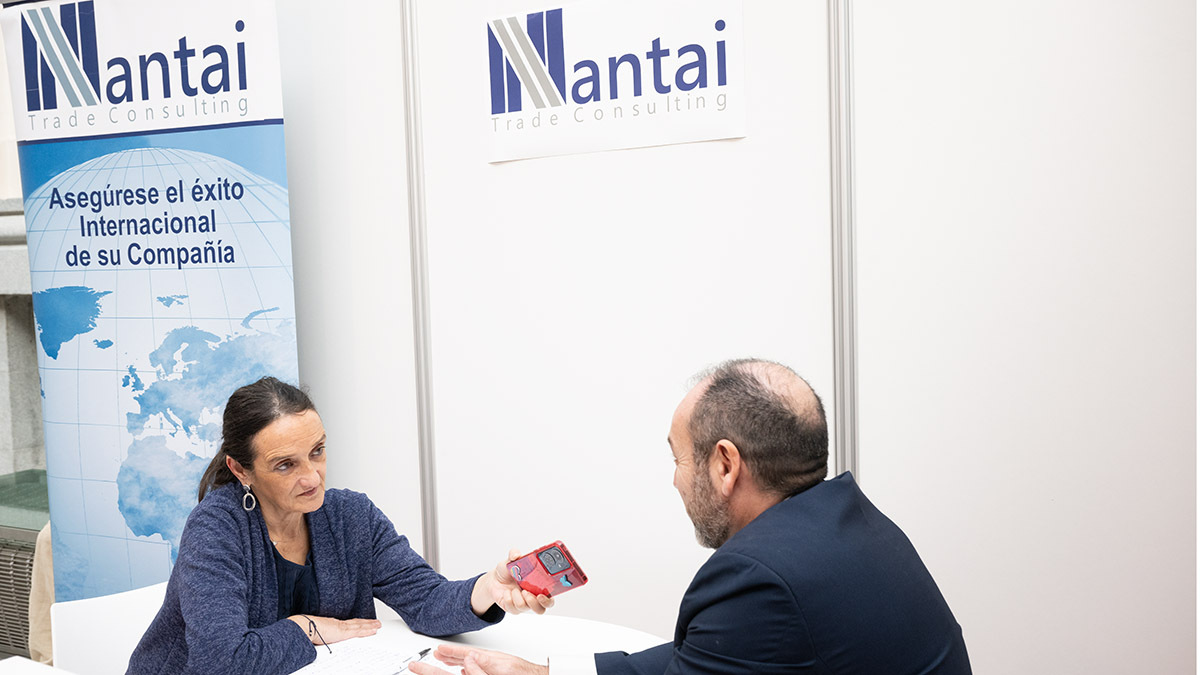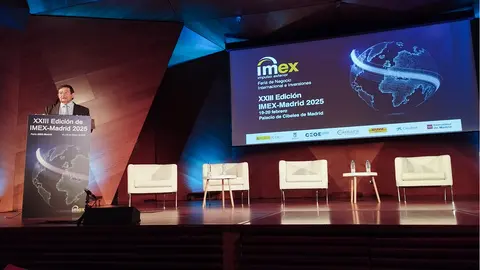Esteban Requero: ‘As consultants, it is also our job to reassure companies’

Mexico, Morocco, India and China are some of the countries where Nantai Trade Consulting operates. The objective is to help Spanish entrepreneurs to internationalise and to enable them to be successful in these new foreign markets. To do this, they analyse each company, destination country and sector in order to adapt to the characteristics of each project. The current geopolitical situation is creating a degree of uncertainty in the business sector, which is why Esteban Requero, General Manager of International Business Development at Nantai Trade Consulting, has no hesitation in stating that as consultants they must also reassure their clients. Requero talks to Atalayar about the consultancy he represents, the market situation and the possibilities opened up by countries such as India and Morocco. The former as an alternative to China; the latter because it offers great opportunities in view of the needs that will arise for the 2030 World Cup that it will co-host with Spain and Portugal.
You are a consultancy that helps Spanish companies expand. What kind of company?
We help any company to internationalise. Each format, each project, each company, each market or each product has its peculiarities, so what we try to do is to put ourselves at their service to overcome those initial difficulties when they are companies that are just starting out, and to help them in the target market when they already have subsidiaries or other offices established abroad.
You have been working in this field for over 20 years. How have you evolved as a consultancy and how has the demand from Spanish companies changed?
I think that in these 20 years the size of Spanish companies has changed, as well as their productivity and modernisation. There has been a qualitative and quantitative leap. It was also important to become part of the European Union and the EU quality mark, as it has made it much easier to open up markets that were more difficult before, when Spain was the only country involved. There has been considerable evolution, significant growth in Spanish companies that have already considered being present in other countries, and I am not only referring to large companies such as energy or textiles, but also to many medium and small companies that have achieved a significant international presence.
Nantai Trade Consulting has a presence in 13 countries. Have you grown in response to the needs of Spanish companies?
We have tried not to follow the Spanish saying ‘En casa del herrero cuchillo de palo’ (a knife can't be made by the blacksmith who forged it), so we have grown in presence in different countries in order to be able to provide that 360-degree vision to Spanish companies, and not focus on one thing, because there are many companies that may be looking for a specific market and it doesn't have to be the best or even the only one, so we try to give them that vision of the whole globe so that they can expand as effectively as possible.
One of the countries in which they operate is India, which has significant potential. What does the Spanish businessman demand with regard to this country?
What Spanish businesspeople are demanding is market knowledge. Knowledge, market experience, market presence, that you provide them with that support from within the market itself. And this is a justification for why we have grown, why we have a presence in India, as in other countries.

What services does India offer? Which sectors are preferred by our businesspeople?
India is a country with almost 1.2 billion inhabitants that is also implementing what China did, and continues to do, but it is becoming an alternative to this country for several reasons: greater geographical proximity and fewer geopolitical problems, because in the end the governments in China are what they are and the governments in India are what they are, with their great differences. Many Spanish companies are looking for suppliers in India and we help them to find them. As for the sectors preferred by Spanish businesspeople, I think it's all of them. We have companies in the food and industrial sectors and even service companies that can be outsourced.
And the textile sector?
Textiles too, in fact, one of the conversations I just had a few minutes ago was precisely about textiles, and there we offer solutions for improvement as a consultancy. Spanish companies are offering solutions to achieve greater resource efficiency and effectiveness, to help avoid wasting so much water, to avoid having to use so many chemicals, in other words, to make it a little more environmentally sustainable. Businesspeople are also on the move, normally as a country increases productivity or production, they move to neighbouring countries where they start manufacturing even more cheaply, but under strict conditions.
And when Spanish businesspeople go to India, what are they looking for? To take their products there, for example, to establish relationships with Indian companies, to expand their businesses...?
We can find very different projects. But it is true that there are Spanish businessmen who are looking for a partner in India, because to create a company in this country you have to have at least 50% of the company in the name of a local citizen. This fact eliminates other models of collaboration, often a distributor is sought, because creating a company in partnership with another person, either you have a lot of trust or many doubts are generated.
And is that another of Nantai Trade Consulting's objectives?
Of course, either of the two options. In fact, we now have one of the projects in which we are providing guidance on the advantages and disadvantages of the distributor, advantages and disadvantages of creating your own company, for the purposes, in this case it is an agricultural company, of all the processing of the phytosanitary certificates that must be carried out in order to enter the European Union. The regulations or the relationship with the producer change depending on whether you are a distributor or if it is your own company when it comes to completing all the formalities.
We leave India and go to Morocco, what does our neighbouring country have to offer?
It is similar in some ways, in terms of the production capacity it gives you, the way it makes costs cheaper, the fact that it is also a supplier of some products... and with the great advantage of proximity. The proximity, obviously, to the African continent, to Morocco in particular, is very important. Furthermore, in Morocco you don't need to have a local partner who is Moroccan, you can create a company 100% under your name, you can be the shareholder with 100% of the shares of a company created in Morocco. In fact, we have helped companies to create them, to generate them without any inconvenience. That also gives you other possibilities, although it is true that some companies benefit or are provided with more resources and others less. For example, the automotive sector in Morocco is experiencing tremendous growth, yet the textile sector is declining. These are cycles, in the end when a country grows economically, wages grow, the people who were willing to work for that amount also change, and in Morocco we are also finding that there is a change in trend due to the policy they are pursuing. This is also happening in China. We talk about nearshoring, I buy closer, they produce it for me... It also has an influence that Morocco has made trade agreements with China, the United States and the European Union, so we enter into this triangulation, that is to say, I could buy from a Moroccan company that imports products from China and I buy it in Spain with zero tariffs, whereas if I buy it directly from China I would have to pay that import tariff. All of this is what we communicate to companies so that they can choose the route that is most interesting for them when it comes to generating business.
Morocco is the guest country at this 23rd edition of IMEX-Madrid. They are talking about the one-stop shop, the investment charter, tax advantages... Will these changes encourage Spanish businesspeople to invest there?
Probably one of the first consultancies to start talking about Morocco in this forum was Nantai Trade Consulting. We did it because we were carrying out projects to set up Spanish companies there. It's true that all these measures you mention make it easier to work in Morocco, but in the end, if companies decide to go to Morocco, they have to be clear about things, because the help on the ground is different. When we have helped Spanish companies to set up, we have obviously had dealings with the Regional Investment Centre, because it facilitates the procedures for, for example, the generation of the company, with the investment centres, because they help you in the justification of the aid from the Moroccan Government or the tax exemptions ... but you have to know what aid you can apply for as a company and which option interests you the most. Setting up a company is more beneficial in the long term because you will also have a tax exemption in Morocco, although these vary. What is clear is that the opportunity exists and it is a very good one because of that triangulation, because of those bilateral agreements, because of the proximity... When there are problems with Algeria it has been seen that it brutally affects and business is cut off; with Morocco, this does not and will not happen, because we are condemned to understand each other, condemned in the best sense of the word.

Since the announcement of the joint hosting (Spain, Portugal and Morocco) of the 2030 World Cup, has Spanish investment in the African country increased?
I'm going to talk to you on a personal level, and from my experience over many years, what has most facilitated contact and trust with the person in front of me has been football. I remember at customs in Dubai when they saw I was Spanish they would ask me: ‘Real Madrid or Barcelona?’ and that first impact, which is usually one of mistrust, was already changing. The World Cup has brought us much closer together, both Moroccans and Spaniards, and it encourages business. Morocco is in great need of infrastructure. It may be a bit of a long shot, but I think it's true that Morocco is in the same situation as Spain was 40 years ago, in terms of growth, infrastructure, catching up with its southern neighbours... The World Cup has brought them closer to us and this opens doors and minds.
Do you argue that Spain is the gateway from Africa to Europe?
We don't realise how lucky we are to be the gateway to Europe, the gateway to Africa for Europe, and also the gateway to the South American continent. We are in a privileged position.
Which countries do you think will grow and be more interesting for Spanish businesspeople in the coming years?
That's a very difficult question, it's impossible to know. Besides, are we talking about large companies or small and medium-sized enterprises? In which sector: agriculture, industry, technology? I think each one has to find its own niche. There will be countries with better macroeconomic prospects, but that doesn't mean that doors won't be closed to you when you try to do business with them.
And have you noticed whether the geopolitical situation we are experiencing is affecting your clients?
For the moment, they are waiting to see what happens. Money is naturally fearful. The moment there is bad news, everything retracts. But then we realise that things are still working, albeit at a different pace. How long will the tariffs last? We don't know, but you can't just withdraw. Remember what happened with Brexit, there have been changes, payment of tariffs, more bureaucracy... but as far as I know, we are still selling to England. What we have to do as consultants is also to reassure companies. From our point of view, there are changing times, but they are not eliminating us.











